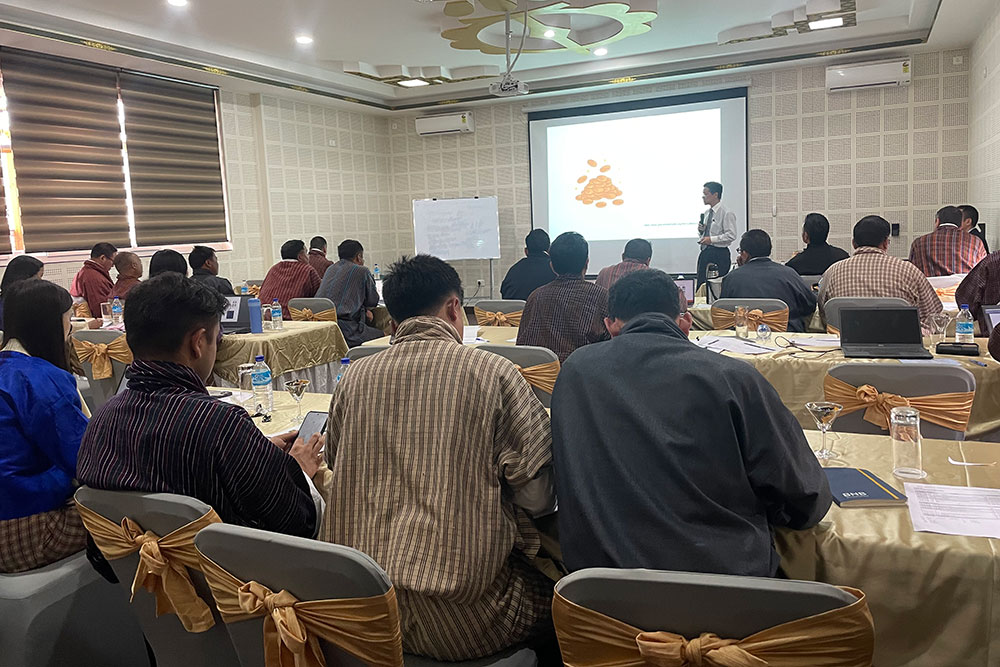Sherab Lhamo
To improve the day-to-day operations, to increase productivity and reduce cost, state-owned enterprises (SOEs) in the country are adopting Kaizen, also popularly known as Toyota Production System, designed to improve business processes and productivity of organisations.
Modelled on the “bottom-up activity”, Kaizen seeks to make small changes over the years to create improvements within the company. Toyota employs Kaizen by encouraging and empowering employees to identify areas of potential improvement, according to Masashi Takano, Team leader and JICA’s Consultant.
Kaizen is spread over 100 countries, and had been adopted by companies such as Toyota, Sony, Ford, Samsung, Mcdonalds, among others.
In Bhutan, 5 out of 10 State-Owned Enterprises (SOEs) under the Ministry of Finance (MoF), are running on losses, in deficit or debt, prompting the ministry to find new ways to improve the organisation’s business process and productivity.
According to the ministry’s official, MoF proposed to JICA to invite Kaizen experts comprising of six experts on Kaizen, Corporate Strategy, Financial Analysis, and Technical Expertise to help reform the SOEs.
One of the ways to accelerate SOEs reforms was to provide incentives like money or rewards, and provide necessary support to encourage the SOEs, said Masashi Takano.
The two-day workshop, ended on March 21. The training was facilitated by the Japan International Corporation Agency (JICA).
The project Kaizen had begun in November 2023, with situational analysis conducted in the pilot SOEs for the implementation of Kaizen. The project will end in February 2025 with an assessment of its impact and progress of the pilot SOEs by the JICA consultants, and would be expanding it to cover SOEs.
“This training equips us with tools to improve efficiency, service delivery, and marketing within the organisation,” said General Manager of Green Bhutan Corporation Limited, Tshering Dorji.
The training consisted of interactive sessions, case studies, and real-life examples of the successful implementation of Kaizen in businesses in countries like Japan, Africa and others.
Chief Executive Officer of Food Corporation of Bhutan Limited, Dorji Tashi, said there were numerous opportunities to apply Kaizen in day-to-day activity, and not just in managing business.
“If we can implement it sustainably, I think it could help us manage our business and improve the performance of the company.”
Ugyen Tshomo of Bhutan Post said implementing Kaizen could be used to make work easier, such as sorting of International and domestic parcels. A simple way taught was differentiating the parcels through colour coding the places, though there is a name attached to the parcel, colour coding allowed for quicker identification and simplified the sorting process.
JICA officials shared that the implementation of Kaizen principles aligned seamlessly with Bhutan’s commitment to sustainable development and efficiency enhancement across sectors.


